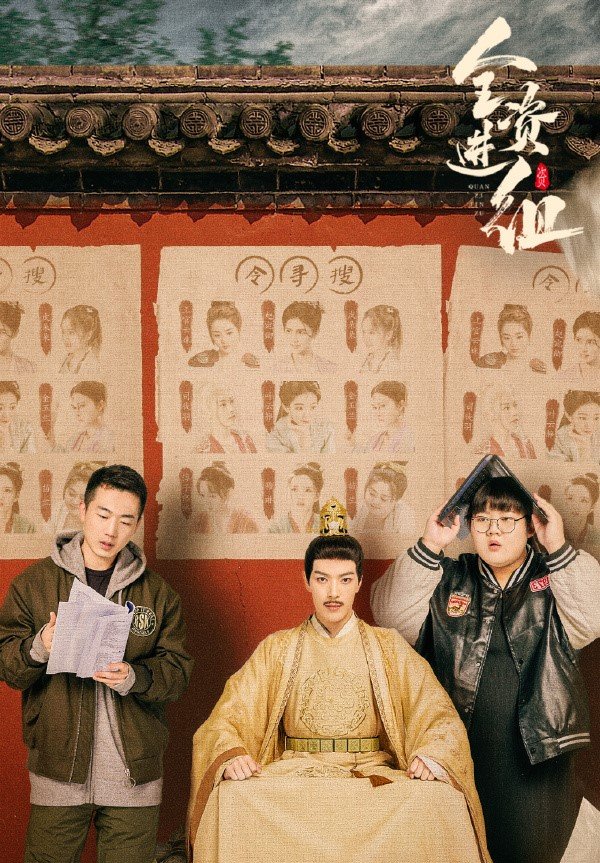An Actors Rhapsody
In “An Actor’s Rhapsody,” director-writer Michael Tan presents a meta-narrative that ingeniously blends the chaos of film production with the complexities of personal ambition. At the heart of this comedic farce is a lead actor, who, as both the principal financier and star of the film, wields the power to reshape the project to suit his grandiose vision. What ensues is a cinematic kaleidoscope that throws conventional storytelling out the window, resulting in a delightful yet disorienting spectacle.
The film’s narrative is a self-aware deconstruction of the creative process gone awry. The actor’s insistence on rewriting the script to cast himself as the hero in every possible scenario—ranging from royal battles and suspense-filled espionage to fantastical xianxia adventures and convoluted time-travel plots—results in a story that is, at times, bewilderingly fragmented. Yet, this very fragmentation serves as a satirical commentary on the nature of artistic egotism and the often absurd lengths to which individuals will go to see their own dreams realized.
The characterization is a mix of bold caricatures and genuine human moments. The screenwriter, portrayed with a mix of exasperation and resilience, embodies the struggle of creative professionals constrained by external pressures. This character’s role as the frustrated artist forced to navigate through the actor’s whims adds a layer of depth to the narrative, making the audience empathize with his plight even as they laugh at the absurdity of his situation.
“An Actor’s Rhapsody” delves into themes of ambition, artistic control, and the collision between personal desires and collective storytelling. The actor’s relentless pursuit of redemption and self-fulfillment underscores the film’s exploration of the lengths individuals will go to achieve their dreams. Beneath the chaos and comedic farce lies a poignant examination of the human condition and the often messy reality of artistic endeavors.
Visually, the film is a tour de force. The director’s choice to seamlessly integrate a variety of genres and styles—often within the same scene—showcases a playful yet sophisticated approach to filmmaking. The eclectic mix of costumes and settings, from opulent palaces to fantastical realms, is executed with a keen eye for detail and a sense of playful excess. While this might overwhelm some viewers, it effectively mirrors the tumultuous nature of the production itself.
The lead actor’s performance is a double-edged sword. On one hand, it is a bravura display of versatility and charisma as he tackles an array of roles with gusto. On the other hand, his omnipresence in every narrative twist can sometimes border on the self-indulgent, detracting from the film’s overall cohesion. Nevertheless, his commitment to his role reflects the core theme of the film—the collision of personal ambition with the collective creative process.
“An Actor’s Rhapsody” is a unique cinematic experience that challenges conventional norms while offering a meta-commentary on the film industry’s inner workings. It is a playful, if occasionally disjointed, exploration of ambition and artistic integrity. For those who appreciate a film that pushes boundaries and embraces its own absurdities, “An Actor’s Rhapsody” is a rewarding watch, providing both humor and insight into the pursuit of artistic dreams.

